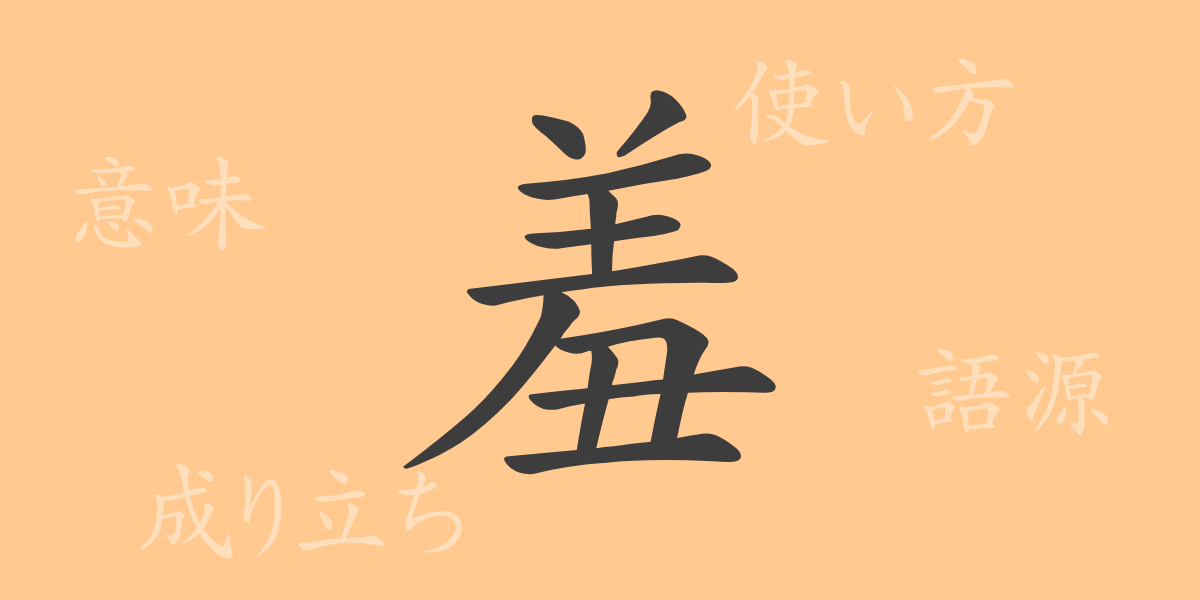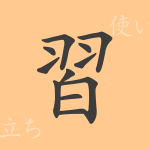The beauty of the Japanese language is reflected in its intricate writing system. Each kanji character carries deep meanings and history, offering a glimpse into the rich cultural background. In this article, we spotlight the frequently used kanji “羞(しゅう, shuu)” and delve into its origins, meanings, usage, and related idioms and phrases, unraveling the full scope of this fascinating character.
Origin of 羞(しゅう, shuu) (Etymology)
The kanji “羞(しゅう, shuu)” is composed of the characters “羊(ひつじ, hitsuji)” meaning “sheep” and “丑(うし, ushi)” indicating the sound. In ancient China, sheep were considered precious gifts, and the recipients would feel a sense of embarrassment or humility. This historical context gave “羞(しゅう, shuu)” its meaning of feeling ashamed or embarrassed.
Meaning and Usage of 羞(しゅう, shuu)
The kanji “羞(しゅう, shuu)” conveys the feeling of shame or embarrassment and is primarily used to express psychological emotions. For instance, “羞恥心(しゅうちしん, shuuchishin)” refers to the feeling of shame or embarrassment, while “羞明(しゅうめい, shuumai)” describes the act of blushing due to embarrassment. This character is often seen in literary works, where it is used to depict deep emotional states.
Readings, Stroke Count, and Radical of 羞(しゅう, shuu)
The kanji “羞(しゅう, shuu)” showcases the complexity of the Japanese language with its readings and structure.
- Readings: The on’yomi (音読み) reading is “シュウ(しゅう, shuu),” and the kun’yomi (訓読み) readings are “はじ(る, hajiru)” and “すす(む, susumu).”
- Stroke count: The kanji “羞(しゅう, shuu)” has 13 strokes.
- Radical: The radical is 羊(ひつじ, hitsuji), indicating its relation to sheep.
Idioms, Phrases, and Proverbs Using 羞(しゅう, shuu)
The kanji “羞(しゅう, shuu)” is embedded in various idioms and phrases in Japanese, conveying subtle nuances of emotion and behavior.
- 羞恥心(しゅうちしん, shuuchishin): The feeling of shame or embarrassment, related to pride and morality.
- 羞明(しゅうめい, shuumai): Blushing due to embarrassment, a physical reaction to feeling ashamed.
- 羞怯(しゅうきょう, shuukyoo): A combination of shame and timidity, describing a shy or timid disposition.
Conclusion on 羞(しゅう, shuu)
The kanji “羞(しゅう, shuu)” holds deep cultural significance, symbolizing feelings of embarrassment and internal emotions. Understanding this kanji and its related idioms enriches one’s appreciation of the expressive richness of the Japanese language. Through exploring “羞(しゅう, shuu),” one gains valuable insights into the depth of Japanese linguistic and cultural expression.

























